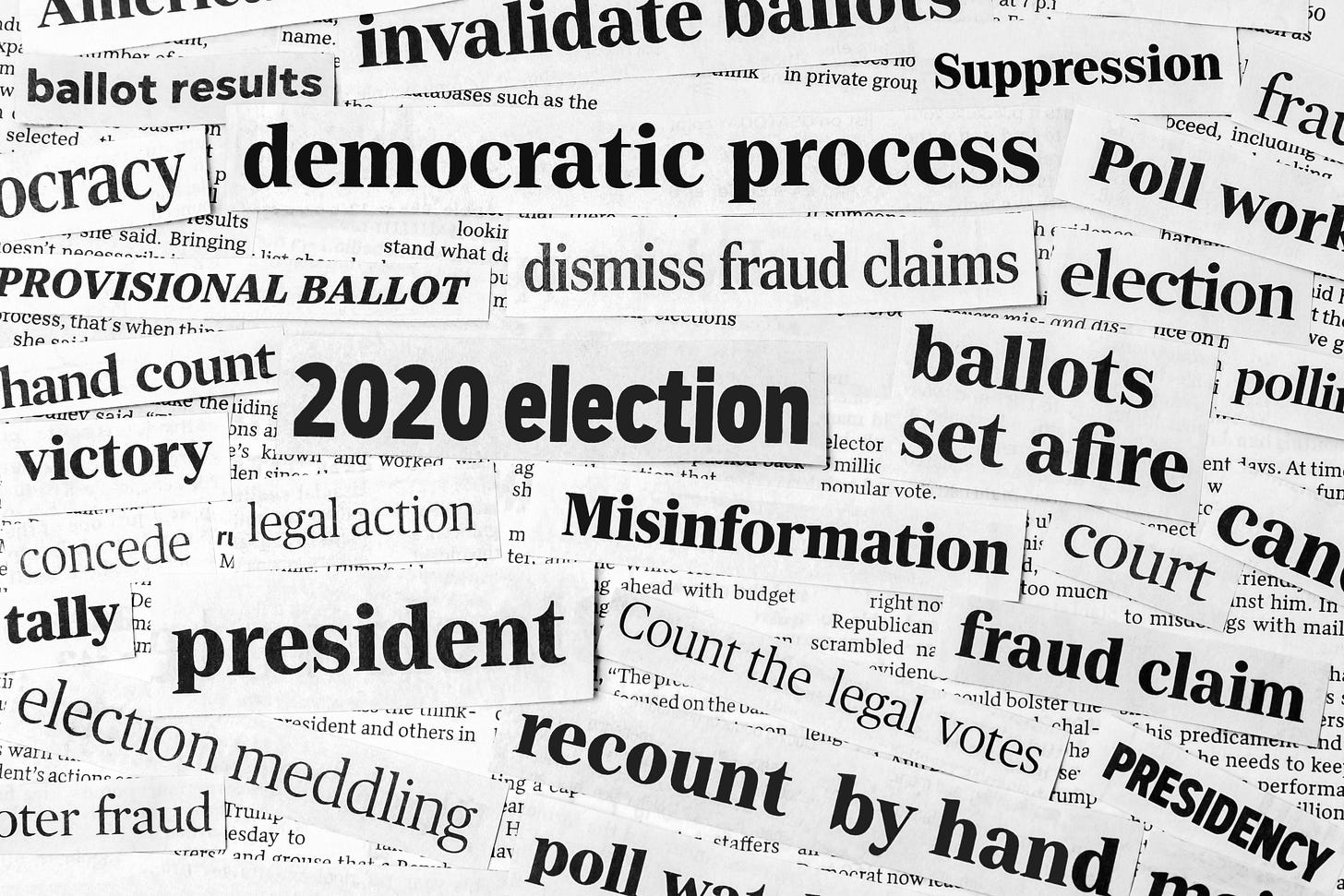Is Democracy Failing? What Should Business Do?
Trendspotting - Issue 2
Many around the world have expressed concern about the future of democracy, as populist movements spread and Western governments are perceived as ineffective. In the UK, politics is chaotic in the aftermath of Brexit and the pandemic. In the US, anxiety about democracy is high, as both the current and past Presidents have expressed concern amid the continuing turmoil over the 2020 election. Bitter and increasingly entrenched partisan divides, reinforced by biased information sources, have raised the perceived stakes in elections at a time when many have doubts about their integrity. The same partisan divides have reduced the public’s credibility and support for every major institution, from courts to the press, from businesses to universities. According to the index published by Freedom House, the United States’ freedom score fell from 94% in 2010 to 83% in 2020, about the same as Poland and South Korea, and well below Canada and all western European countries – including the former Soviet republics of Estonia, Latvia and Lithuania.
A recent Brookings report argues that democracy risks failing in the US despite overwhelming support in principle. The authors note near-universal agreement that the system is not delivering results, pessimism that it can improve, and strong disagreement about the changes required. They acknowledge that institutional checks – Congress, states, courts, bureaucracy and the press – limit presidential power, but argue that the informal norms shaping the behavior of these institutions have weakened significantly, making them vulnerable to an organized effort by a future President to override them. They see a significant risk of a systematic assault on state and local election machinery by partisans interested in a particular outcome, further undermining elections’ legitimacy and possibly inciting violence.
Any threat to democracy creates instability and is bad for business. The authors make a case for active business involvement in protecting American democracy. They argue that free markets depend on effective governments; that only democracy provides the necessary accountability. ; and that business leaders and investors should push back against efforts to weaken democratic institutions. Identifying restrictions on voting rights as the gravest threat to democracy, they contend that businesses and investors have a fiduciary duty use their influence to oppose such restrictions.
This contention is weak. It is not the business of business to do the jobs of politicians and voters, but rather to work within the rules established by government and society. Arguably, businesses already have too great an influence on elections, particularly after the 2010 Supreme Court decision in Citizens United v. Federal Election Commission, which eliminated campaign finance restrictions and enabled corporations to spend unlimited funds on elections. Meddling by business in government is rightly perceived as a danger to democracy and an invitation to corruption. Moreover, overt involvement could well backfire: public trust in businesses is already low and is likely to fall further if companies are perceived as partisan. Politicians have already found favor by attacking companies that oppose legislation.
The Brookings report does, however, illustrate an important dilemma. Investors and interest groups increasingly evaluate companies on a growing list of ESG criteria, and expect them to advocate for policies that align with those criteria. In today’s highly polarized political environment, any such advocacy is often viewed as insufficient or even disingenuous by ESG supporters, and offensive and intrusive to those on the other side. As a result – no matter what position they take, or even by remaining silent – companies now risk being labelled “red”, or “blue”, or simply “too political”, with reputational and financial implications. Sometimes a business cannot avoid engaging in a controversial political issue; but it requires careful judgment and flawless message control.
Sources
Galston WA and E Kamarck, “Is democracy failing and putting our economic system at risk?”, Brookings Institution, 2022.



